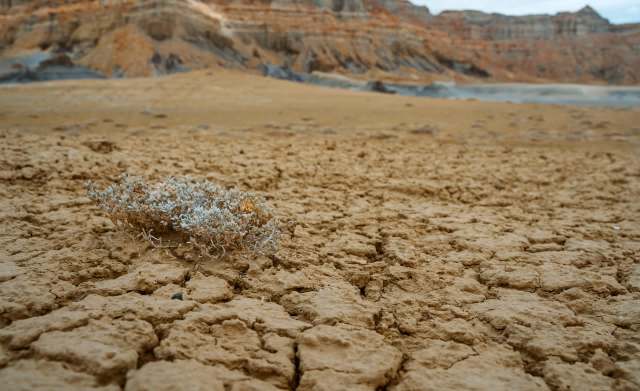A State in Crisis: Utah’s Struggle with Drought and Wildfires
As the summer heat intensifies, Utah is facing an escalating environmental crisis that has left many residents concerned. The state is experiencing one of its most severe droughts in recent history, with nearly 80% of the area under moderate to severe drought conditions. Over 46% of Utah is suffering from severe drought, and seventeen counties have declared a state of emergency. Governor Spencer Cox has taken a unique approach, calling for a “Day of Prayer and Fasting for Rain” this Sunday, highlighting the urgency of the situation.
Wildfires have already devastated over 43,000 acres this year, and experts warn that the threat is far from over. Approximately 75% of these fires are attributed to human activity, such as unattended campfires, discarded cigarettes, and sparks from machinery. These small mistakes have led to devastating consequences, further exacerbating the already dire conditions.
The drought has worsened significantly, with conditions deteriorating by more than 80% in just one month. Water supplies in southwestern Utah have dropped below 35% of usual spring runoff levels, posing serious challenges for farmers, ranchers, and homeowners. The impact of this drought extends beyond the immediate environment; it threatens crops, drinking water, and fire safety. As global temperatures rise, droughts are becoming more severe, altering weather patterns and disrupting natural water cycles.
Pollution plays a significant role in intensifying these challenges. It contributes to rising temperatures, leading to stronger storms and prolonged dry spells. Experts suggest that these harsher droughts are likely to become more frequent, emphasizing the need for long-term solutions.
The Role of Government and Individual Action
One pressing question is whether the government should impose restrictions on water usage during major droughts. Opinions vary widely, with some advocating for strict measures, while others believe such actions are unnecessary. The debate highlights the complex balance between individual rights and collective responsibility.
Governor Cox has not only called for prayer but also urged citizens to take practical steps to conserve water. He encourages fixing leaks around homes, reducing lawn watering, and using water wisely. These small actions, when combined, can lead to significant positive changes for the state. In 2021, Cox made a similar call for rain, and when record snowfall occurred in 2023, he celebrated with a day of thanksgiving.
Innovative Solutions and Community Efforts
Beyond traditional approaches, communities are exploring innovative solutions to combat drought and its effects. In Bangladesh, researchers have developed methods to grow rice using less water, while other teams have found ways to trap carbon pollution in stone. In Mexico, some factories have transitioned to reusable packaging to reduce waste.
Renewable energy is also playing a crucial role. Adding solar panels with battery storage can help keep homes powered during droughts or heat waves. EnergySage suggests that comparing quotes from local installers could save families up to $10,000, making sustainable energy more accessible.
Making a Difference
While small changes may seem insignificant, they can have a meaningful impact, especially in a state like Utah, where every drop of water counts. Individuals can start by adopting environmentally friendly practices, such as reducing water usage and supporting sustainable initiatives. By making conscious choices, people can contribute to a healthier planet and a more resilient community.
Joining local efforts, staying informed, and sharing knowledge can create a ripple effect that benefits everyone. Whether through personal action or community involvement, there are numerous ways to make a difference. Every effort, no matter how small, adds up to create a lasting impact.







